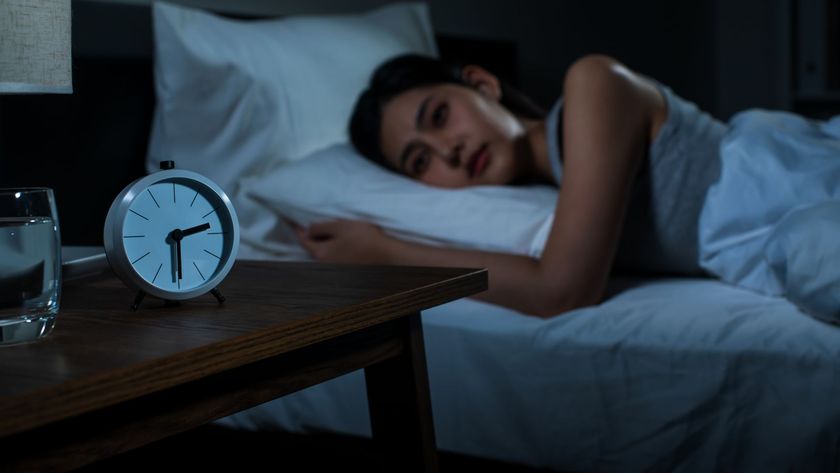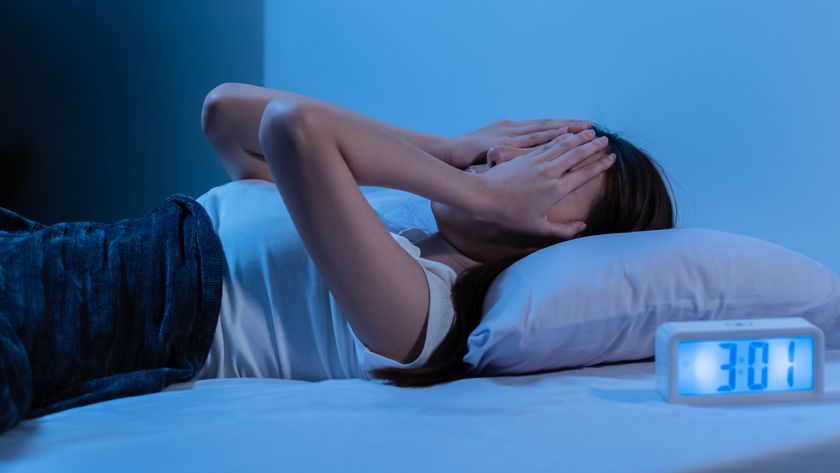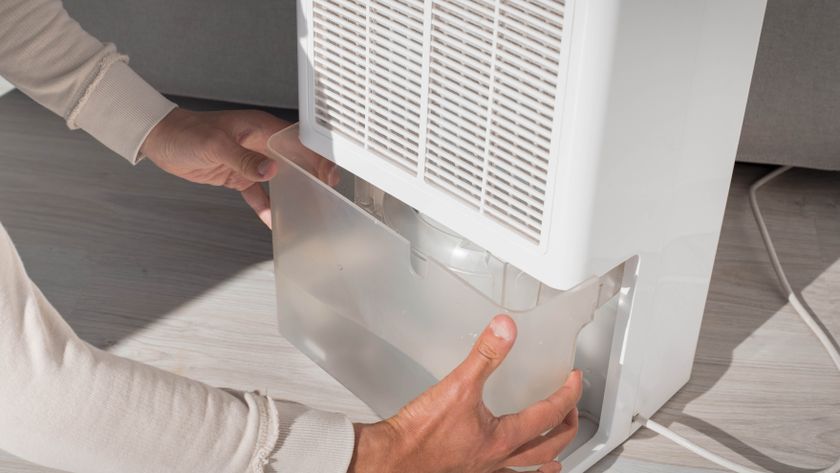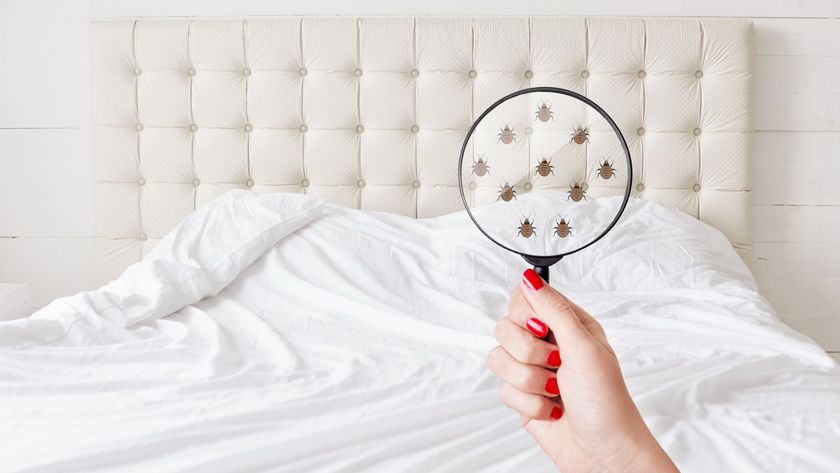How to sleep with GERD — 5 steps from a sleep doctor
The five changes you can make to sleep better with GERD

Lying awake, unable to get to sleep, can feel uncomfortable, especially when you’re suffering from GERD.
GERD, or gastroesophageal reflux disease, is a condition that can cause stomach acid to give you heartburn or difficulty swallowing. A painful condition at any time of the day, it can be especially annoying at night, so you may have wondered how to sleep with GERD.
Gravity plays an important part when it comes to your GERD symptoms - and when you lie down they could get worse, as the stomach acid can creep back up your throat. Sleeping with GERD could feel impossible, but there are a few simple changes to make, which could mean you get the 7-9 hours that are recommended.
We’ve spoken to the experts who’ve explained how to sleep with GERD and why the condition can make sleeping feel uncomfortable and almost impossible.
What is GERD and what causes it?
Studies show that around 60 million people in the US suffer from GERD, a chronic digestive condition where the acid in your stomach, from the food you’ve eaten, and sometimes bile, flows back up the oesophagus and causes uncomfortable symptoms.
These symptoms include heartburn, which feels like a burning in your chest and can be worse when you lie down, bloating, regurgitation and sometimes even a cough, trouble swallowing and feeling sick.
Usually caused by diet and lifestyle, such as alcohol, smoking or spicy foods, other more serious conditions such as obesity or a hernia could cause GERD. Although a common condition it can be seen as serious, especially if you suffer from it regularly, rather than occasionally.
Sign up to get the BEST of Tom's Guide direct to your inbox.
Get instant access to breaking news, the hottest reviews, great deals and helpful tips.
The symptoms can make you feel incredibly uncomfortable, especially around the chest and stomach area, while some who suffer from the condition complain that sleeping with GERD can be difficult.

How to sleep with GERD
Sleeping with GERD can be challenging because lying down can make it easier for stomach acid to flow back into the oesophagus, causing symptoms to get worse. However, several strategies may help you sleep more comfortably and manage GERD symptoms at night:
1. Elevate your head
Raise the head of your bed by about 6 to 8 inches (15 to 20 cm). You can use a wedge pillow or place a firmer pillow under your normal pillow to elevate it.
Dr Leah Kaylor explains that gravity plays a crucial role in sleeping with GERD and suggests: “Keeping your upper body slightly elevated reduces pressure and helps acid stay where it belongs - in the stomach.”
2. Sleep on your left side
Studies suggest that sleeping on your left side can reduce acid reflux compared to sleeping on your back or right side.
“When you lie on your left side, your stomach stays below the oesophagus, which helps keep stomach acid where it belongs.”
The sleep doctor adds that the “lower oesophagal sphincter (LES - the muscle that acts as a valve between the stomach and oesophagus) remains above the level of stomach acid, making it less likely for acid to move up into the oesophagus.”

3. Avoid Eating Before Bed
Do not eat within 2–3 hours before going to bed. This gives your stomach time to empty and reduces the risk of acid reflux during sleep.
“If you enjoy spicy foods, consider savoring them earlier in the day—lunchtime is an excellent opportunity,” explains Kaylor, “By eating spicy meals earlier, you give your body ample time to process them fully before bedtime and reduce the likelihood of GERD. This approach allows you to enjoy the flavours you love while also setting yourself up for a peaceful, restorative night’s sleep.”
Other food and drinks that could trigger GERD are citrus food and drinks, chocolate, caffeine, alcohol, and fatty or fried foods, especially in the evening.
4. Don’t sleep on your back or right side
Avoid sleeping on your back if possible, as this position can increase the likelihood of acid reflux. When you're on your back, gravity doesn't help keep stomach acid down, and it can more easily flow into the oesophagus.
“If you are going to lay on your back, prop yourself up to have gravity work with you,” explains the sleep doctor.
Adding that “lying on your right side can also make symptoms worse as it relaxes the LES and allows acid to flow more easily into the oesophagus, worsening GERD symptoms.”
5. Improve sleep hygiene
If your GERD symptoms are bad you may put off sleep, and slip into a bad sleep schedule, however the more consistent your sleep schedule is, the easier it will be to drift off to sleep quicker and stay asleep.
Improving your sleep hygiene and having a healthy sleep environment will also help you sleep better, and get the right amount of sleep every night. Replace old bedding which you find uncomfortable, and invest in blackout blinds or ear plugs if your environment means you could be distracted while you fall asleep.
Ensuring you have the best mattress for your sleep style will help keep you comfortable, while the best pillow for your sleep position will keep you supported.

Why is GERD worse when we sleep?
Lying on our backs, or just in a horizontal position, straight after a meal, doesn’t give our bodies enough time to time to process what we just ate, with Dr Kaylor explaining that lying down can increase “pressure on the stomach and diaphragm, exacerbating discomfort and making it harder to relax.”
If you’ve just had a takeaway, with some added heat, or a large meal this can also make it worse: “Spicy foods and heavy meals can increase the likelihood of acid reflux, where stomach acid flows back into the esophagus, causing discomfort or a burning sensation. This is particularly problematic when lying down, as gravity no longer helps keep stomach acid where it belongs. This can be especially problematic for those prone to gastroesophageal reflux disease (GERD).”
Sarah is a freelance writer who has been published across titles including Woman & Home, The Independent, and the BBC. Sarah covers a variety of subjects, including health and wellness. For Tom's Guide Sarah often writes about sleep health and hygiene, and interviews leading sleep experts about common issues such as insomnia and sleep deprivation.























